Extract from The Guardian
Residents of the rural Queensland town say bringing the family home is unfinished business they cannot let go of.
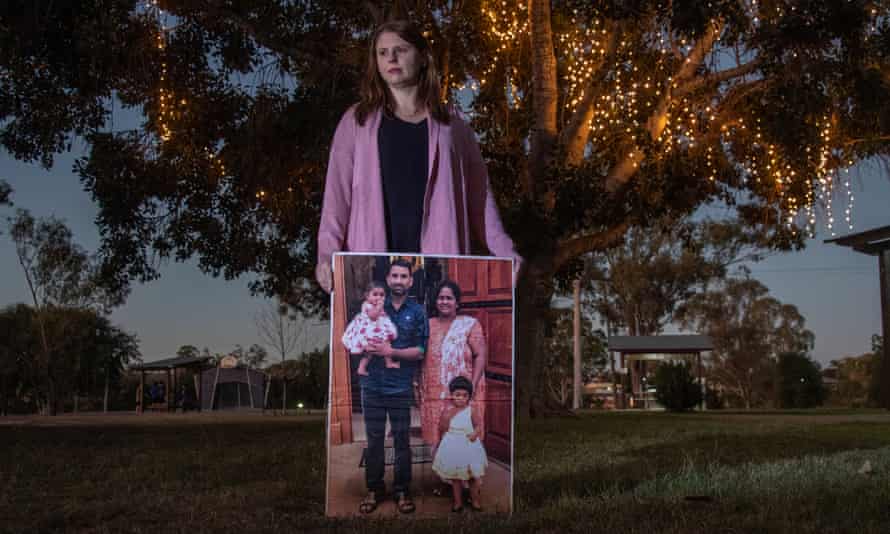
Last modified on Sat 12 Jun 2021 08.26 AEST
Home is a town among ruddy brown sorghum fields; a place where modest weatherboard houses are built on generous streets. Home is an old yellow cottage on Rainbow Street, near the Catholic church in Biloela.
Home is a place where the ordinary moments of rural life have become filled with their absence.
It has been more than three years since Tamil asylum seekers Nades and Priya Murugappan, and their daughters Kopika and Tharnicaa, were taken from their home in Biloela and placed in immigration detention.
“They belong here and it feels like nothing can go on as normal until this has finished, until they’re back,” says Marie Austin, a grandmother who has lived in the central Queensland hinterland town with her family for 15 years.
“We go on with our day-to-day living but there’s this unfinished thing that we can’t let go of. They’ve been robbed of so many experiences that we take for granted.”
This week was the local Eisteddfod, where children Kopika’s age stood on stage for the first time, reading poetry. Later this month is the Flourish Festival, which celebrates people from Biloela’s migrant communities. Every Saturday morning at the local supermarket, they are missed.
“A friend’s son started school recently, and before his first day of prep she sent around pictures of him with his backpack,” says Angela Fredericks, a social worker and Biloela local.
“Priya and I often talk and say this is where they belong. We don’t know what the journey or plan is, but … we are both just so firm in that faith that this is where they need to be, so this is where they’ll be.”
Harry calls the PM’s office
Harry Dendle is eight. He lives in Biloela with his parents, four siblings, two cats, a dog, a chook, a turtle and a fish who, he says sadly, “is almost dead”. Harry remembers playing with Kopika when their parents would run into one another in town.
He has
resolved to become prime minister (he’s confident he can juggle the job
with his other chosen career as a YouTuber) so his friends can return
home.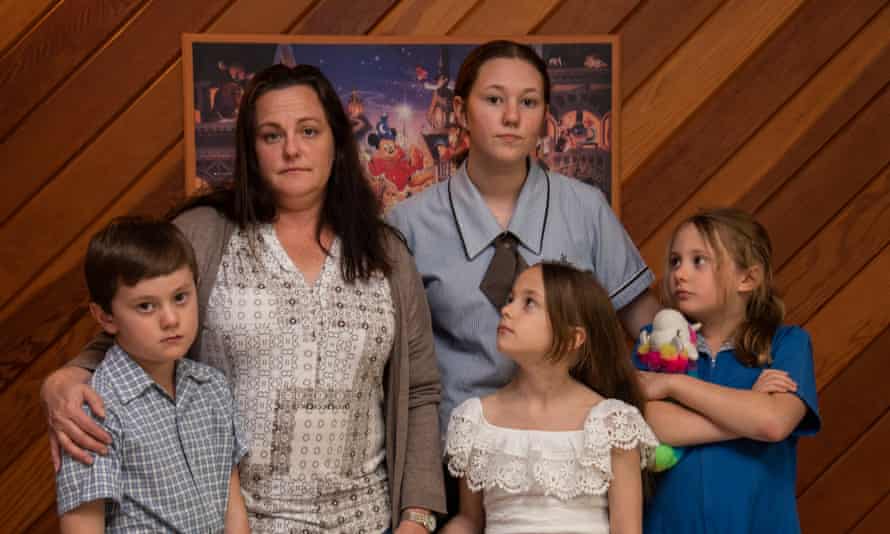
‘Can you please let our friends back into Biloela where they belong?’: Harry Dendle with his mother Bronwyn and sisters Samantha, Charli and Bella. Photograph: Brian Cassey
“It was really hard to explain at the time,” says Harry’s mum, social worker Bronwyn Dendle.
“I had to explain that the boss of the country, who we worked out was called the prime minister, he was the one who made the decisions. I said to him ‘we’re trying really hard mate, we’re doing all that we can, we’re writing to the PM, we’re phoning all of the ministers to see what we can do’. Then Harry said ‘I want to talk to the boss of Australia’.”
“Hi, it’s Harry Dendle from Biloela,” he said.
“Can you please let our friends back into Biloela where they belong?”
Bronwyn was one of the first people to realise the Tamil family was missing in 2018, when Priya didn’t turn up for a physiotherapy appointment at the hospital.
“I was devastated. I had to leave work, I couldn’t function. I couldn’t work out why people weren’t right then and there storming the streets,” she said.
“In Biloela kids can still walk to and from school with no dramas. People leave their houses unlocked, their cars unlocked. When they came and took them it was like a violation of the whole community.
“There is no way this family represented a threat to anyone that would require the type of force that was involved with that raid. From then on, that’s what has fed the sense of injustice in this community. It’s not right. What’s happening to the family is not right.”
“It’s devastating as a mother of five, I’d see Harry go to kindy and thought about how Kopika should have been there the year after,” Dendle said.
“They just need to be back here so we can look after them.”
‘They are our friends’
Everyone in Biloela offers a cuppa. We sit around kitchen tables, sip milky tea and yarn for a few minutes about the weather, or raising kids. And then about how unusual it seems that these otherwise conservative country folk have become some of the country’s fiercest refugee activists.
“I’m not someone who is out there looking for a fight on anything,” says Austin, who in 2018 went on national television to ask questions on behalf of the Murugappan family.
“I
don’t do public speaking, full stop! But I know these people. They are
our friends. If we as their friends don’t fight for them, then no one
will.”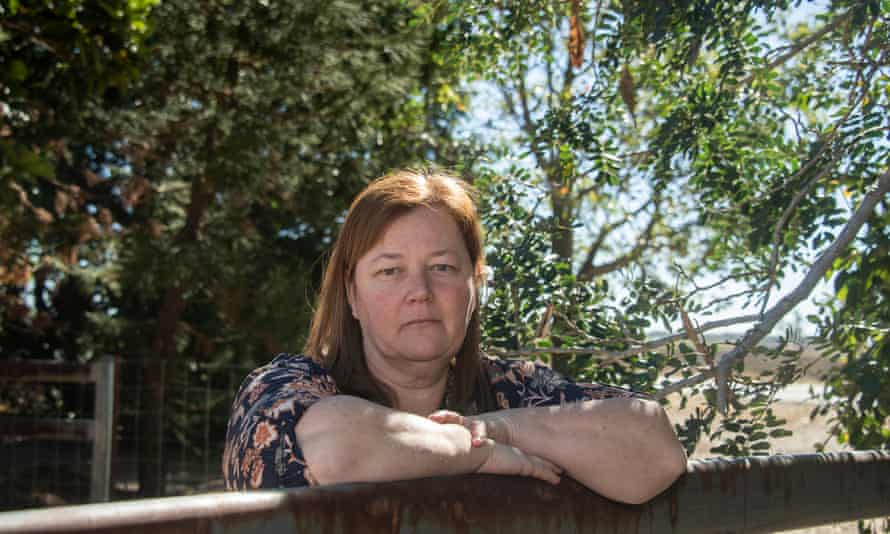
‘If we as their friends don’t fight for them, then no one will’: Biloela resident Marie Austin. Photograph: Brian Cassey
“Conservative voters out here by and large hugely support the return of this family to Bilo because they valued them. A lot of them are reluctant to speak up though.
“I’ve been surprised that we haven’t got the ear of the powers that be with this amount of groundswell and this amount of public support, but I definitely know that the conservatives in town support it but support it quietly.
“People will agree ‘we need border control’, some will even say ‘yes we need to stop the boats’, but in the same breath they will say what’s happening to this family is not right.”
Without exception, Biloela locals who knew Priya and Nades tell the same story about how a Tamil family, whose English could often be difficult to understand, found belonging and acceptance in rural Australia.
Nades did not have work rights when they first arrived in Bilo in 2014, so he volunteered with St Vincent de Paul.
“I remember hearing stories from a couple of old blokes who were talking about when they were renovating Vinnies and talking about Nades, they said they’ve never seen someone just keep going,” recalls Fredericks.
“It was clear the respect he had in the eyes of these everyday people.”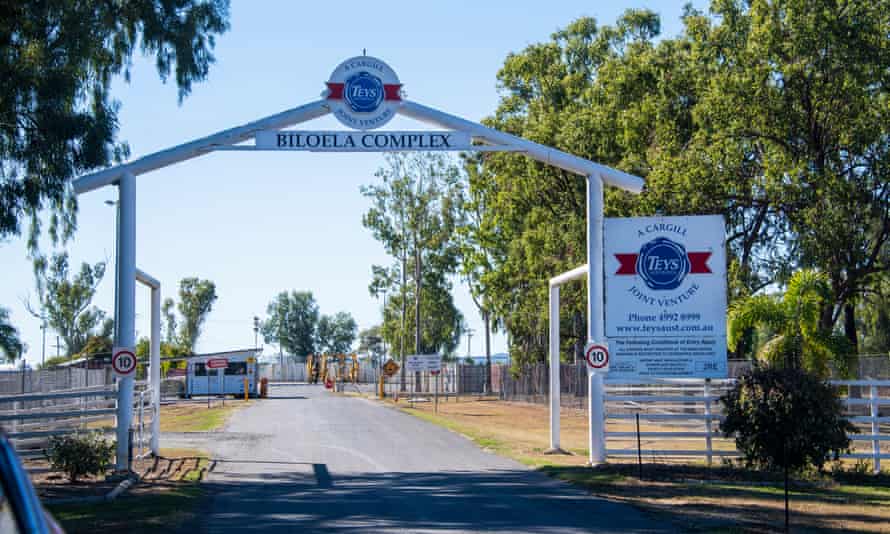
‘His first job here was pushing trolleys at Woolworths. Nothing was below him or beneath him’: the meatworks in Biloela where Nades worked. Photograph: Brian Cassey
Priya threw herself into community life. She went to crafting classes and volunteered. She made curries and brought them to staff at the nearby hospital. She would wave as she marched the same circuit around Biloela, every afternoon at the same time, pushing a stroller.
On weekends, the family went everywhere together.
“Their neighbours, people they came across, just were instantly taken by them,” Dendle said. “Priya and Nades were always such attentive parents, you just fell in love with that type of family and that experience was replicated [in the community].”
‘This is where I got to be a happy person’
“Biloela is home. It is where my life started,” Priya told her friend Fredericks last year.
“This is where I got to be a wife, to fall pregnant. To be a happy person.”
There is a modesty to life in Biloela that belies many of the narratives that infect public debate about refugees and immigration in Australia.
The abattoir, where Nades had been working, struggles to attract locals. If these are “economic migrants” looking for advantage rather than safety, they have instead found a life of hard work and little largesse.
“Yes they’re a special family, they’re special to us,” says Jayne Centurion, who lives in the street behind the family’s old home.
“But they’re also an ordinary family. There’s nothing special about just wanting safety and wanting a modest house, they’re just the things all of us wish for.
“What I think makes this case particularly notable is because we miss them. If we hadn’t had the interactions we did, they probably could have been taken in the dead of night and we wouldn’t have known.”
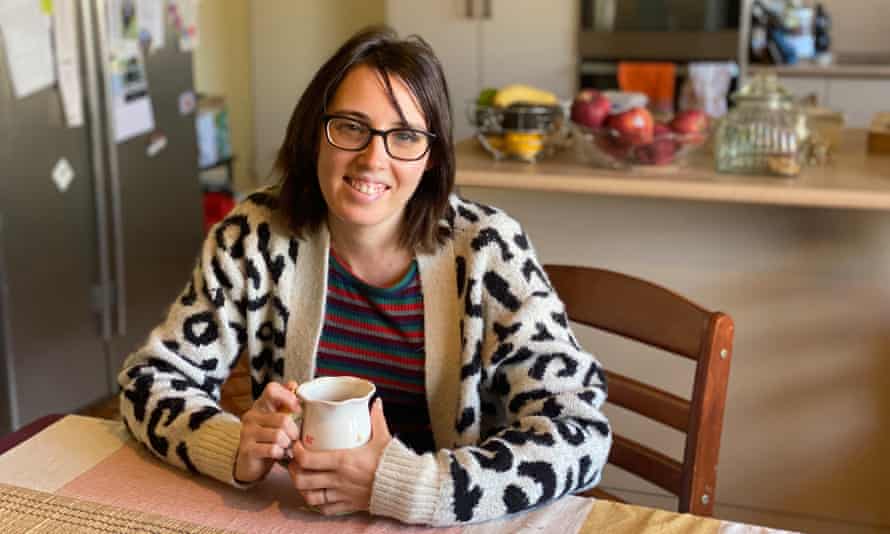
They don’t speak about their struggle in terms of being allowed to stay in Australia or being released from detention. Their fundamental aim – even as talk about resettlement in New Zealand or the US was floated this week, then snuffed – is going home to Biloela.
Home is a place where, this week, Austin’s sick three-year-old grandson was able to see a doctor.
Tharni will spend her fourth birthday in Perth children’s hospital being treated for sepsis caused by untreated pneumonia.
Her plight has again brought considerable public attention to the community’s campaign to bring them home to Bilo.
“This feels like it’s the last stand, a make or break sprint to the finish,” says Dendle.
“We just need to push hard now to bring them home. This family are exactly the type of people that rural Australia need, that Biloela need. Aside from the fact we fell in love with them when they were here.”
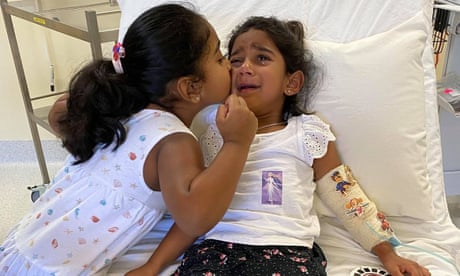
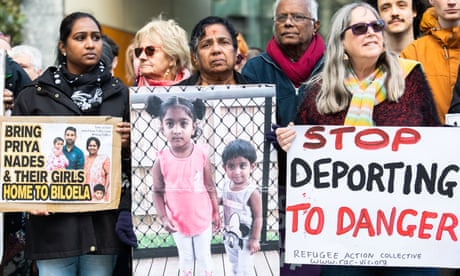
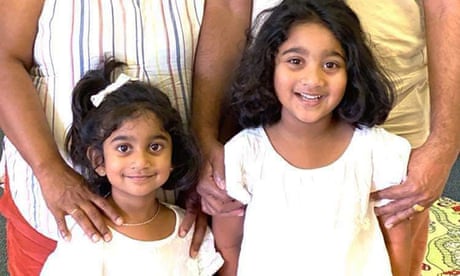
No comments:
Post a Comment